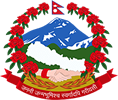Infrastructure Development Company Limited (IDCOL), Bangladesh
IDCOL is a government-owned financial institution established in 1997. IDCOL encourages private sector participation in infrastructure and energy projects and they are currently the largest financier for renewable energy projects in Bangladesh. IDCOL is also the primary agency supporting the mainstreaming of solar pumps: to date, over 90% of the solar pumps installed in the country have been financed through IDCOL and they have a target of installing a total of 50,000 solar pumps by 2025. IDCOL works with all relevant stakeholders in the solar irrigation sector including NGOs, Sustainable and Renewable Energy Development Agency (SREDA), academics, private companies, the federal government, solar pump manufacturers, development partners, and the farmers of Bangladesh. IDCOL is an approved grantee of the Global Climate Funds (GCF). IDCOL’s vast experience in this sector, coupled with a capable workforce and extensive network with both local- and national-level stakeholders make them an ideal partner for working in Bangladesh.
Gujarat Energy Research and Management Institute (GERMI) in India
Gujarat Energy Research & Management Institute (GERMI) is a centre of excellence in the energy sector and is promoted by Gujarat State Petroleum Corporation Limited (GSPC), a Government of Gujarat Undertaking. It has four key mandates: training, education, consultancy, and research and development. GERMI is a registered Society and Trust under the Societies Registration Act, 1860, and the Bombay Trust Act, 1950. It is also a recognized Scientific and Industrial Research Organization (SIRO) by the Department of Scientific and Industrial Research (DSIR), Government of India. GERMI has been a key player in the design of the Government of Gujarat’s solar policies, including the Dhundi-inspired Suryashakti Kisan Yojana (SKY). IWMI and GERMI have been working closely on climate-smart promotion of solar irrigation in Gujarat since 2013-14.
Alternative Energy Promotion Centre (AEPC) Nepal
AEPC is a government institution established in 1996 with the objective of developing and promoting renewable energy technologies in Nepal. It works under the Ministry of Energy, Water Resources, and Irrigation. AEPC functions independently and has a board with representatives from the government, industry, and non-governmental organizations. The mission of AEPC is to make renewable energy a mainstream resource through increased access, knowledge, and adaptability that contributes to improving the living conditions of people in Nepal. AEPC has supported over 1,200 pumps for solar irrigation over the last three years with a 60% subsidy. AEPC is keen to collaborate with this project to evaluate the impact of projects implemented so far and to identify suitable models for moving forward. AEPC will be support SoLAR SA with data and information, access to project implementation sites, and advice regarding needs and gaps in SIP promotion.
Nepal Electricity Authority (NEA)
NEA was created in 1985 after the merger of the Department of Electricity of Ministry of Water Resources, Nepal Electricity Corporation, and related development boards. The primary objective of NEA is to generate, transmit, and distribute adequate, reliable, and affordable power by planning, constructing, operating, and maintaining all generation, transmission, and distribution facilities in Nepal’s power system, both interconnected and isolated. NEA has established a net metering policy (2074 BS); however, it has yet to implement this metering for SIPs, primarily because the technology is new and people will need more education about the technology before adopting it. Therefore, NEA, AEPC and SoLAR-SA have an opportunity to demonstrate SIPs through a pilot so that we can provide evidence for wider replication. NEA will establish a demonstration pilot for the purpose of promoting grid-connected SIPs.
Pakistan Agricultural Research Council (PARC)
Pakistan Agricultural Research Council (PARC) is the apex national organization working in close collaboration with other federal and provincial institutions in the country to provide science based solutions to agriculture of Pakistan through its statutory functions.
Its primary functions include:
- Undertake, aid, promote and coordinate agricultural research
- Arrange expeditious utilization of research results
- Establish research establishments to fill in the gaps in existing agricultural research
- Arrange the training of high-level scientific manpower
- Generate, acquire, and disseminate information
- Establish and maintain a reference and research library
Federal Water Management Cell (FWMC), Pakistan
The Federal Water Management Cell (FWMC) is hosted by the Ministry of National Food Security and Research (MNFS&R), which is also the host Ministry for IWMI in Pakistan.
MNFS&R is primarily responsible for policy formulation and economic coordination and planning for food grains and agriculture. It is also responsible for procuring fertilizer and food grains, stabilizing import prices for agricultural produce, and liaising internationally with other countries and institutions for framing agricultural policies. There are multiple organizations with MNFS&R that perform other functions in support of this overarching mission and they will be key implementing partners in the proposed project. FWMC was established in 1979 and it provides strategic support to MNRS&R for formulating policies at the federal level in consultation with the respective provinces.






